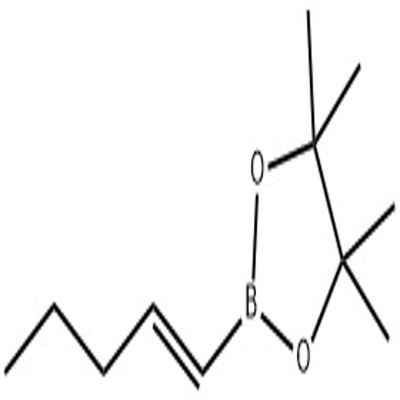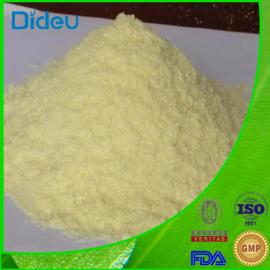-
Categories
-
Pharmaceutical Intermediates
-
Active Pharmaceutical Ingredients
-
Food Additives
- Industrial Coatings
- Agrochemicals
- Dyes and Pigments
- Surfactant
- Flavors and Fragrances
- Chemical Reagents
- Catalyst and Auxiliary
- Natural Products
- Inorganic Chemistry
-
Organic Chemistry
-
Biochemical Engineering
- Analytical Chemistry
- Cosmetic Ingredient
-
Pharmaceutical Intermediates
Promotion
ECHEMI Mall
Wholesale
Weekly Price
Exhibition
News
-
Trade Service
On November 7th, the general consideration of the evaluation of modified drugs (general oral solid preparations) in the evaluation of the quality and efficacy of generic drugs (draft for comments) and the general consideration of the evaluation of modified salt-based drugs in the evaluation of the quality and efficacy of generic drugs (draft for comments) were posted online for comments, the deadline being December 1.
General consideration for the evaluation of generic drugs (general oral solids) in the evaluation of the consistency of quality and efficacy of generic drugs (draft for comments)
For the implementation of the State Council's Opinions on Reforming the System of Review and Approval of Pharmaceutical Medical Devices (Guofa (2015) No. 44) and the General Office of the State Council on the Conduct of Consistent Evaluation of the Quality and Efficacy of Generic Drugs In the spirit of the Opinions (State Office issued No. 8 of 2016), the State Administration of Food and Drug Administration issued a number of technical guidelines, such as the Proclamation on the Implementation of the <>-Related Matters (No. 106 of 2016) and the Guidelines for the Selection and Determination of General Oral Solid Preparations.
is a drug in which the dosage form is not approved for market in the United States, the European Union or Japan, or where it is not possible to determine the same dosage form.
this document applies to the evaluation of generic oral solid preparation modified dosage forms and does not change the route of administration, including but not limited to the content described in this document.I. Overview
Common oral solid preparation modified drugs can be divided into two categories from the point of view of pharmacodynamics that do not significantly change the behavior of pharmacodynamics and change the behavior of pharmacodynamics.
The changes in pharmacodynamic behavior not significantly referred to in this paper include changes between tablets (ordinary tablets, swallowing tablets, chewing tablets, etc.), capsules (hard and softgels), dry suspensions and granules (mixed suspensions), and changes between intestinal tablets and intestinal capsules. Changes in pharmacodynamic behavior, including: changes between ordinary oral solid preparations to slow-release preparations, ordinary oral solids and rapid-release preparations.II, evaluation content
(i) the scientific and rationality of the modified dosage form
from the scientific and chemical nature of the drug, biological nature, clinical needs, patient compliance, pharmacoeconomics, compared with the original dosage form of the drug, such as the scientific, reasonable and necessary.
(ii) Pharmaceutical Evaluation
compared with the original research dosage form comparison preparation system to evaluate the similarity and disadvantage of the two. The quality of the modified drug should be comparable to that of the original dosage form. The evaluation content mainly includes the following aspects:
1. Prescription screening and process optimization: prescription screening, production process optimization, packaging material selection and verification against the requirements of the original dosage form reference preparation and the modified dosage form.
2. Control of raw materials:
2.1 Analysis and detection of key physical and chemical properties of API (e.g. crystalline, solubility under different pH conditions, particle size and particle size distribution, pKa, logP, etc.);
2.2 analysis to detect key properties of the accessories associated with the performance of the preparation.
3. Quality control: systematic analysis compares the differences in the quality of the preparation with the original dosage form, focusing on: the solubility curve of the drug in multiple media;
stability test: focus on traits, dissolved curves, related substances (especially new impurities), content determination and other items.
(iii) Bioethic equivalent tests or clinical trials
A modified drug of the modified type based on biological ethonism and without significantly changing the behavior of pharmacogenesics shall be subject to a biological ethonthonational test with the original dosage form participation preparation.
to change the behavior of pharmacodynamics modified drugs, it is recommended to carry out relative bio-utilization research and clinical trials with the original dosage form comparing preparations.III. Other
Other outstanding matters please refer to the State Food and Drug Administration's Circular on the Requirements for the Publication of New Registration Classification Declarations for Chemical Drugs (Trial) (No. 80 of 2016) and the Circular on the Requirements for the Publication of Consistent Evaluation Of the Quality and Efficacy of Oral Solid Preparations for Chemical Generics (Trial) (Trial) 120th of 2016, "Technical Guidelines for the Study of Human Bioethics of Chemical Drug Generics with Pharmaceutical Dynamics Parameters as the End Point" (State Food and Drug Administration Circular No. 61 of 2016) and "General Considerations for Clinical Effectiveness Trials for The Consistent Evaluation of The Quality and Efficacy of Generic Drugs" (to be issued).
General consideration of the evaluation of modified salt-based drugs in the evaluation of the quality and efficacy of generic drugs (draft for comments)
In order to implement the Opinions of the State Council on the Reform of the Drug Medical Device Review and Approval System(No. 44 of Guofa (2015)) and the Opinions of the General Office of the State Council on the Conduct of the Evaluation of the Conformity of the Quality and Efficacy of Generic Drugs (State Office) In the spirit of No. 8 of 2016, the State Food and Drug Administration issued a number of technical guidelines, such as the Proclamation on the Implementation of the <>-Related Matters (No. 106 of 2016) and the Guidelines for the Selection and Determination of General Oral Solid Preparations, which are supplemented by this article.
salt-based drug is a drug in which the API used in the preparation is not approved for use in the United States, the European Union or Japan, or it is not possible to determine the drug containing the same API.
this document applies to the evaluation of the same allergenic modified salt-based drugs in the evaluation of generic quality and efficacy consistency, including, but not limited to, the content described in this document. I. Overview
Different drugs, if the active ingredients are the same, are only in different forms of salt, called salt-based drugs, including changes to the acid roots, bases or metal ions of known active salts, salts for free forms of drugs or salt-based drugs into free forms and other raw materials and preparations.
In principle, medicines made by altering the form of salt should not change their pharmacological effects, but only their chemical and chemical properties (e.g. solubility, stability, etc.) to meet the needs of storage, production or clinical use. However, each drug in different forms of salt is a compound with unique chemical properties and biological activity, its physical and chemical properties can be changed, can cause the degree or nature of pharmacological action, changes in the process of the body (such as changes in solubility can affect the absorption of drugs, and even the body's pharmacological process will change as a result), thereby affecting the drug's drug effect strength, site and duration, and some even new toxicity, activity or adaptation changes, its clinical efficacy and drug safety is not the same. Re-evaluation of such drugs is an important part of the evaluation of the consistency of the quality and efficacy of generic drugs. , evaluation content,
salt-based drugs including raw materials and preparations. The evaluation of the effectiveness and safety of salt-based drugs should be compared with the modified salt-based drugs, and the similarity and disadvantage of the two projects should be evaluated. The research content is mainly reflected in the following aspects:
(1) the scientific and rationality of salt-based drugs
from the physical and chemical properties of drugs, biological characteristics, clinical needs and other aspects of the analysis and demonstration of salt-based drugs scientific, rational and necessary.
(ii) Pharmaceutical Research
Pharmaceutical research requires comparative testing with modified salt-based drugs, and evaluates the similarity and disadvantages of salt-based drugs and modified salt-based drugs in various projects. The quality of salt-based drugs should be comparable to that of the participating preparations of modified salt-based drugs. The contents of the study mainly include the following aspects:
1. API
1.1 structural identification: according to the requirements of class 2.1 of the new registration classification of chemicals for structural confirmment, should provide sufficient evidence of salt.
1.2 Physicophysical properties: systematic research on the nature of physicophysication should be carried out and compared with the modified salt-based drugs, focusing on the following comparative test data: solubility (different pH, different solvents, etc.), pKa (pKb), moisture absorption (critical relative humidity and moisture absorption curve), crystal type, etc. As far as possible, detailed literature on the chemical and chemical properties of modified salt-based drugs should be provided.
1.3 Quality control: should be carried out and compared with the safety, effectiveness of the various purposes of systematic research, focusing on the material structure of the rigor, impurity analysis methods of scientific and reasonable, impurity generation path and impurity levels, such as comparative test data, in particular whether there are new impurities and their impurities level and toxicity, for the potential safety risks of the salt base (such as methulphate, etc.) to carry out systematic research and control, explain the limits of impurities.
1.4 stability test: the quality control project test should be compared and analyzed, focusing on traits, crystals, related substances, content determination and so on.
2. Preparations
2.1 dosage forms and product composition: different salt forms may have a great impact on the chemical and chemical properties of drugs, which are very important for the selection of dosage forms and the determination of production processes. Attention should be paid to the selection basis of dosage form and specification, as well as the rationality of prescription composition, production process, packaging material selection and determination, and to the comparison with the modified salt-based comparison preparation.
2.2 Control of raw materials: (1) Analysis of the key physical and chemical properties (e.g. crystalline, solubility under different pH conditions, particle size distribution, pKa, logP, etc.) and their control; (2) A brief description of whether the accessories are suitable for the use of the drug route, combined with the role of the accessories in the prescription analysis of the main accessories and preparation performance related to the key characteristics. If there is a change, the rationality of the accessories after the change of prescription and the rationality of the prescription are analyzed and studied.
2.3 Quality control: systematic research and comparison of objectives related to safety effectiveness should be carried out, focusing on the rigorousness of the physical structure, the scientificity and rationality of impurity analysis methods, the way impurities are produced and the level of impurities, especially Whether there are new impurities and their impurity levels and toxicity, for the potential safety risks of salt-based (such as methulphate, etc.) to carry out systematic research and control, explain the basis for the formulation of impurities limits, as well as dissolved curves and other key projects that reflect the characteristics of their dosage form comparative tests.
2.4 stability test: the comparison and analysis of each quality control project test should be carried out, focusing on traits, dissolution curves, related substances, content determination and so on.
(iii) Non-clinical studies
Because salt-based drugs have been marketed and used in clinical treatment, in general, the pharmaceutical active ingredients in the body are the same, in principle, no non-clinical pharmacological and toxicology research will be carried out.
to analyze whether salt-based drugs increase the potential safety risks associated with salt-based drugs compared to modified salt-based drugs. Focus on: whether the toxicity of the salt-forming drug is closely related to the yin-and-yang ions that bind to the salt, whether new potentially toxic impurities may be produced during the preparation of the salt, and whether toxic metabolites may be produced in the body. Toxicology studies are carried out as necessary in accordance with the requirements of Class 2.1 of the New Registration of Chemicals.
(iv) Biological equivalent tests or clinical trials
salt-based drugs based on equivalents, carry out biological equilibrium studies with modified salt-based drug matching agents; III. Other
Other outstanding matters please refer to the State Food and Drug Administration's Notice on the Requirements for the Publication of New Registration Classification Declarations for Chemical Drugs (Trial) (No. 80 of 2016), and the Requirements for the Publication of Consistent Evaluation of the Quality and Efficacy of Oral Solid Preparations for Chemical Generics (Trial) The circular (No. 120 of 2016), the Technical Guidelines for the Study of Human Bioethics of Chemical Drug Generics with Pharmacological Parameters as the End Point (Circular No. 61 of 2016) and the General Consideration of Clinical Effectiveness Trials for the Evaluation of The Conformity of Generic Quality and Efficacy (to be issued) are carried out. (CFDA official website)







